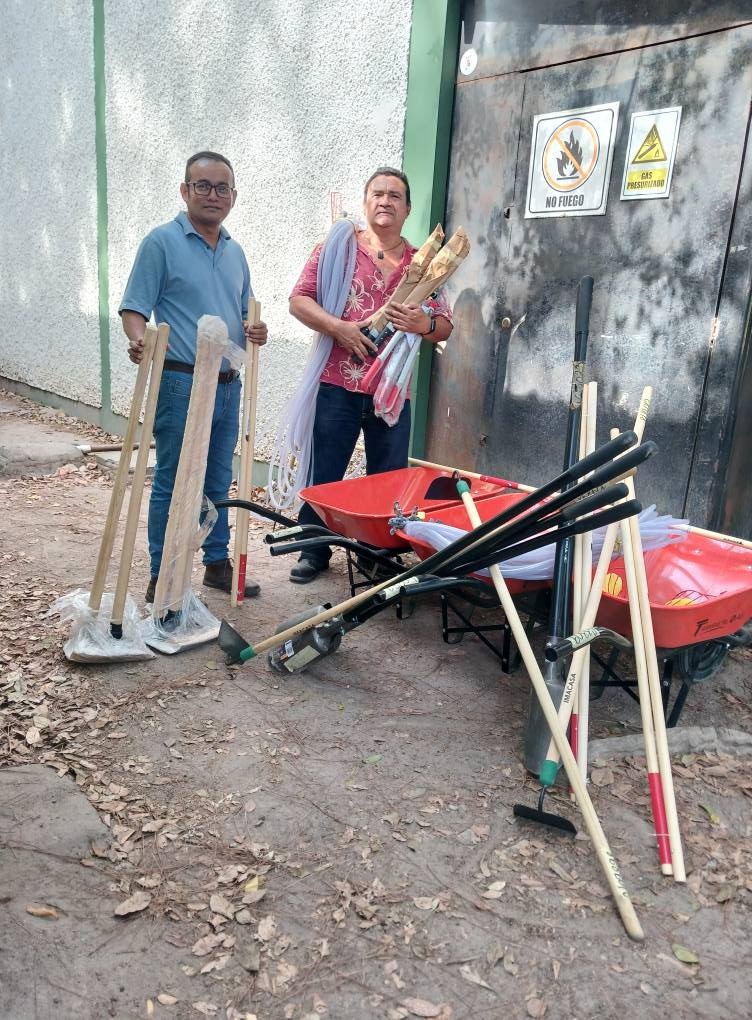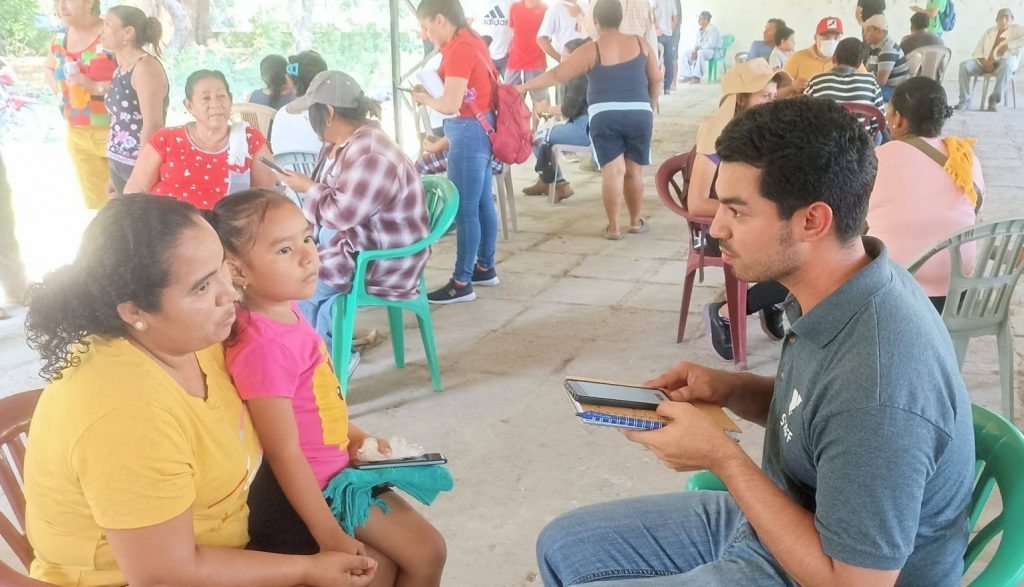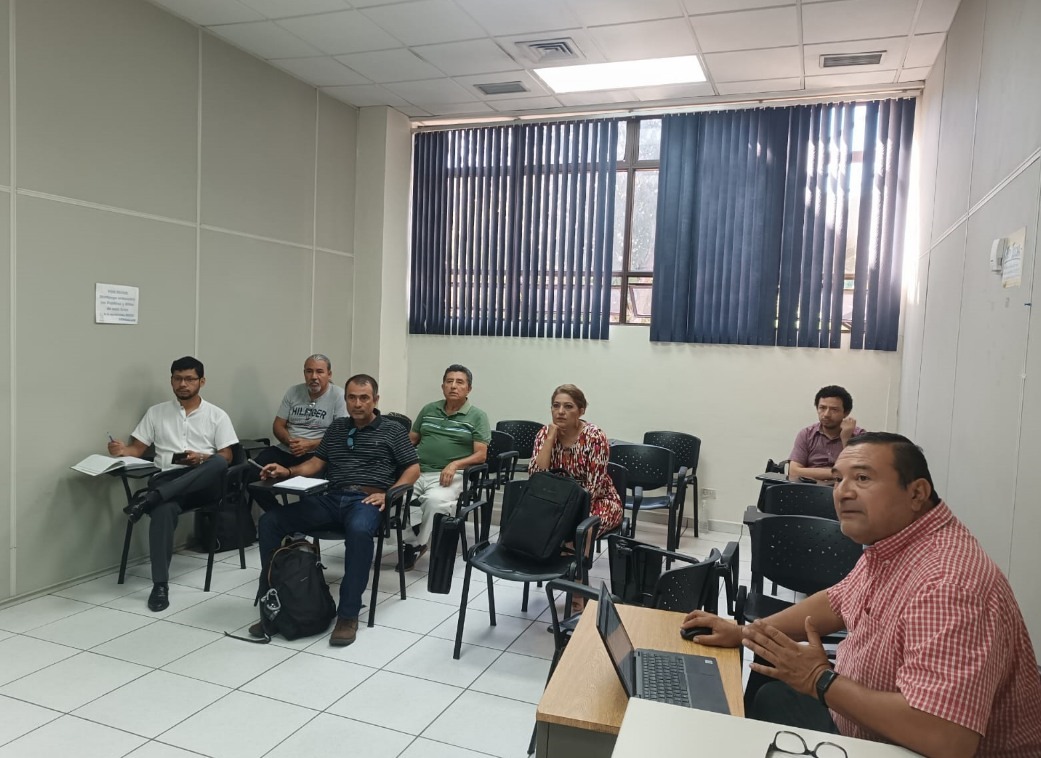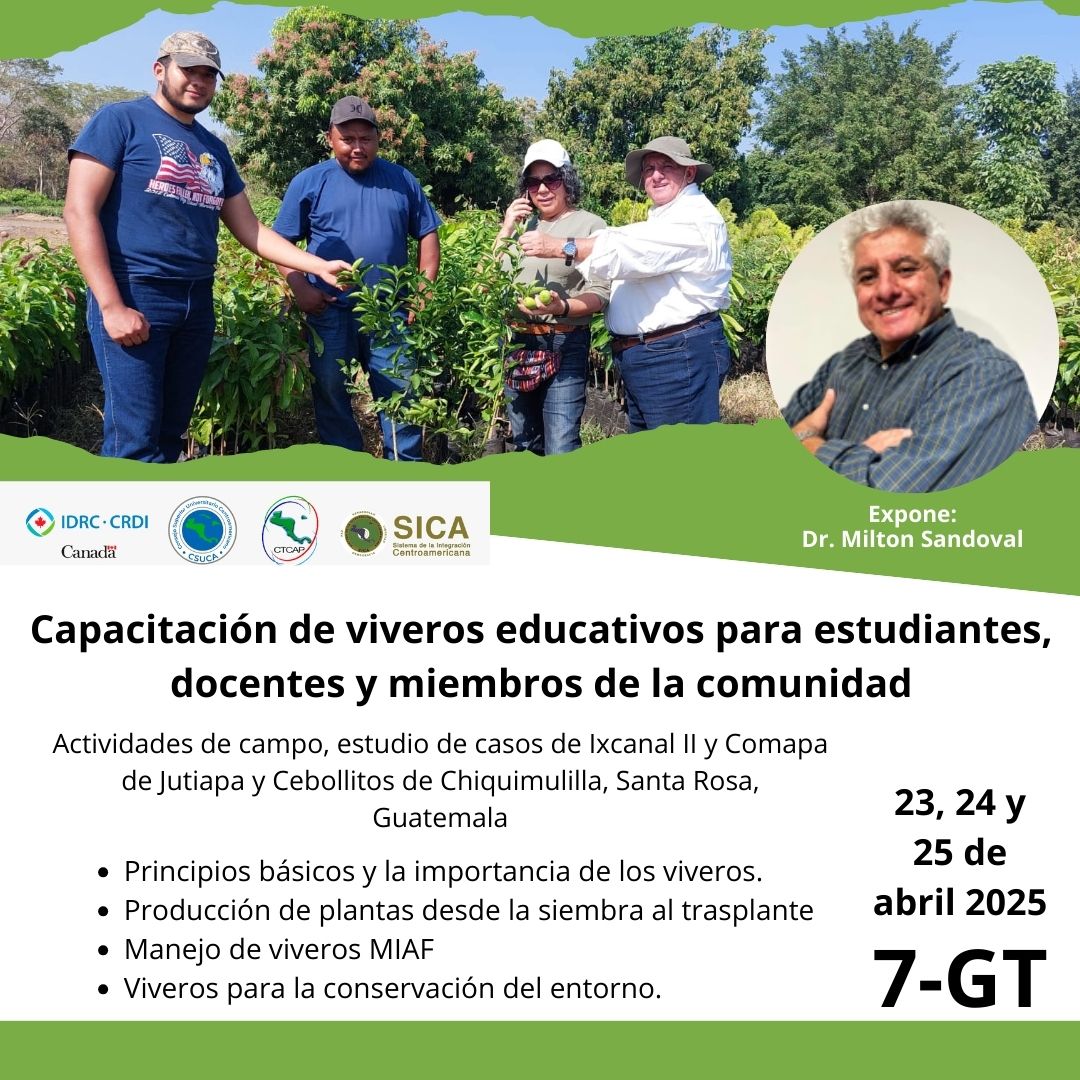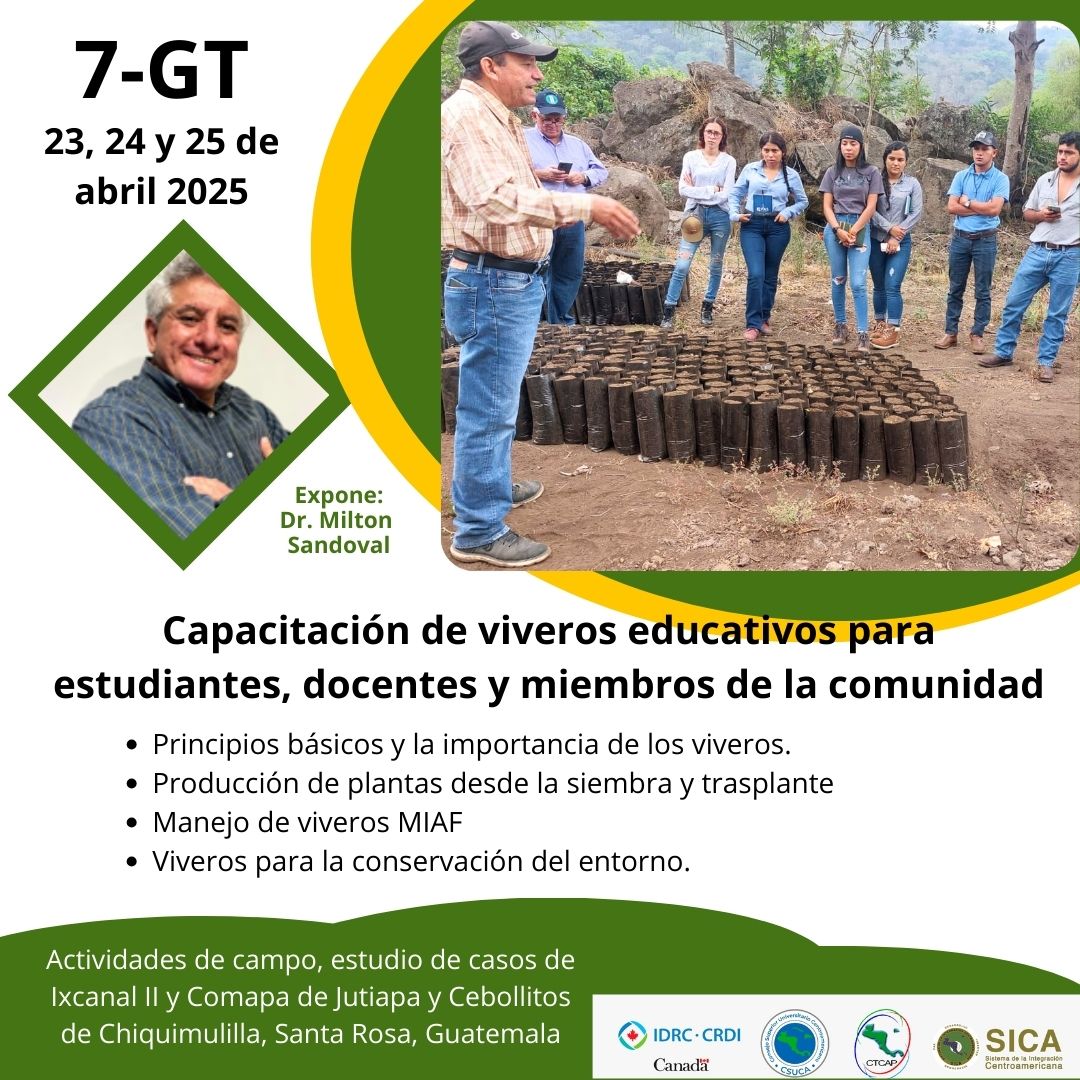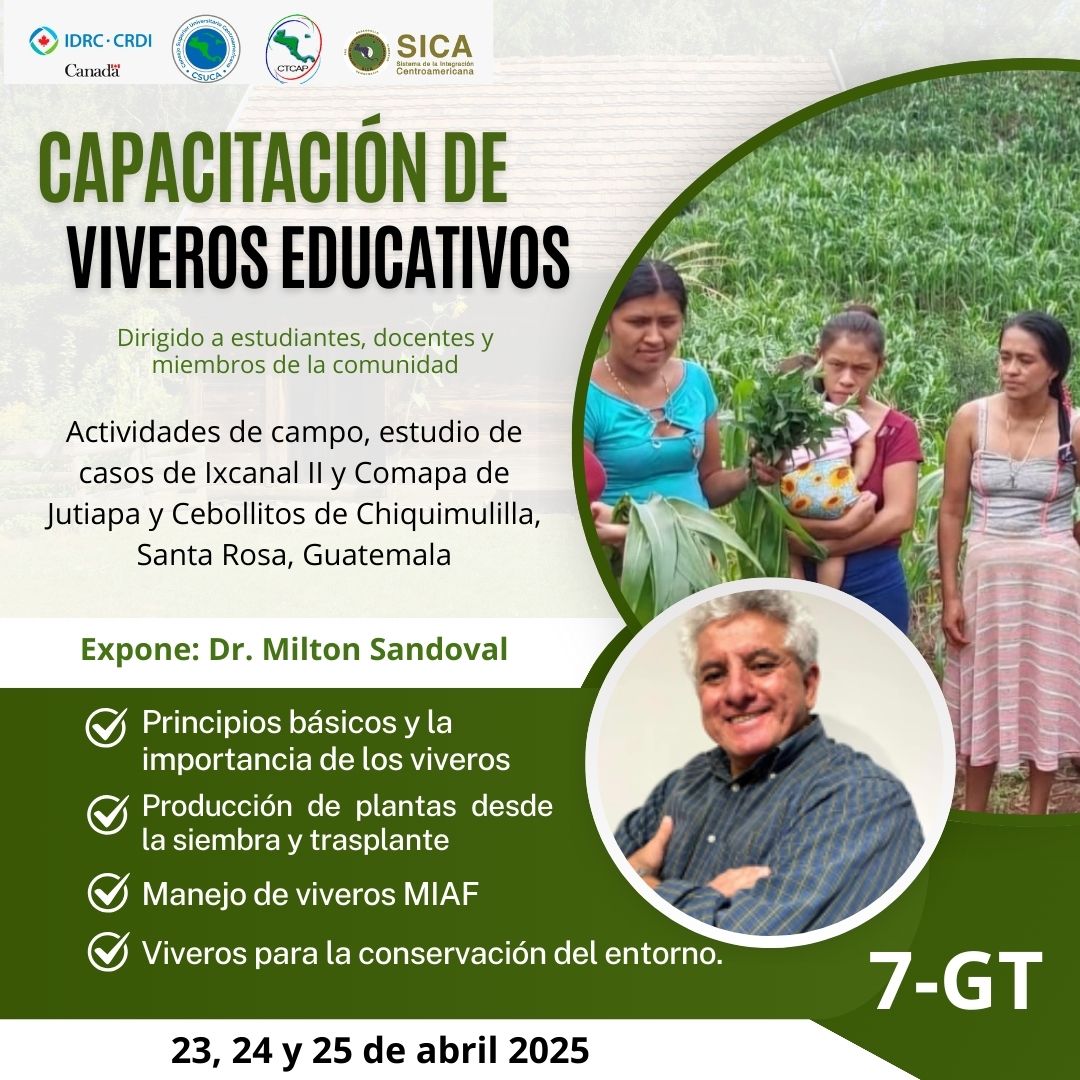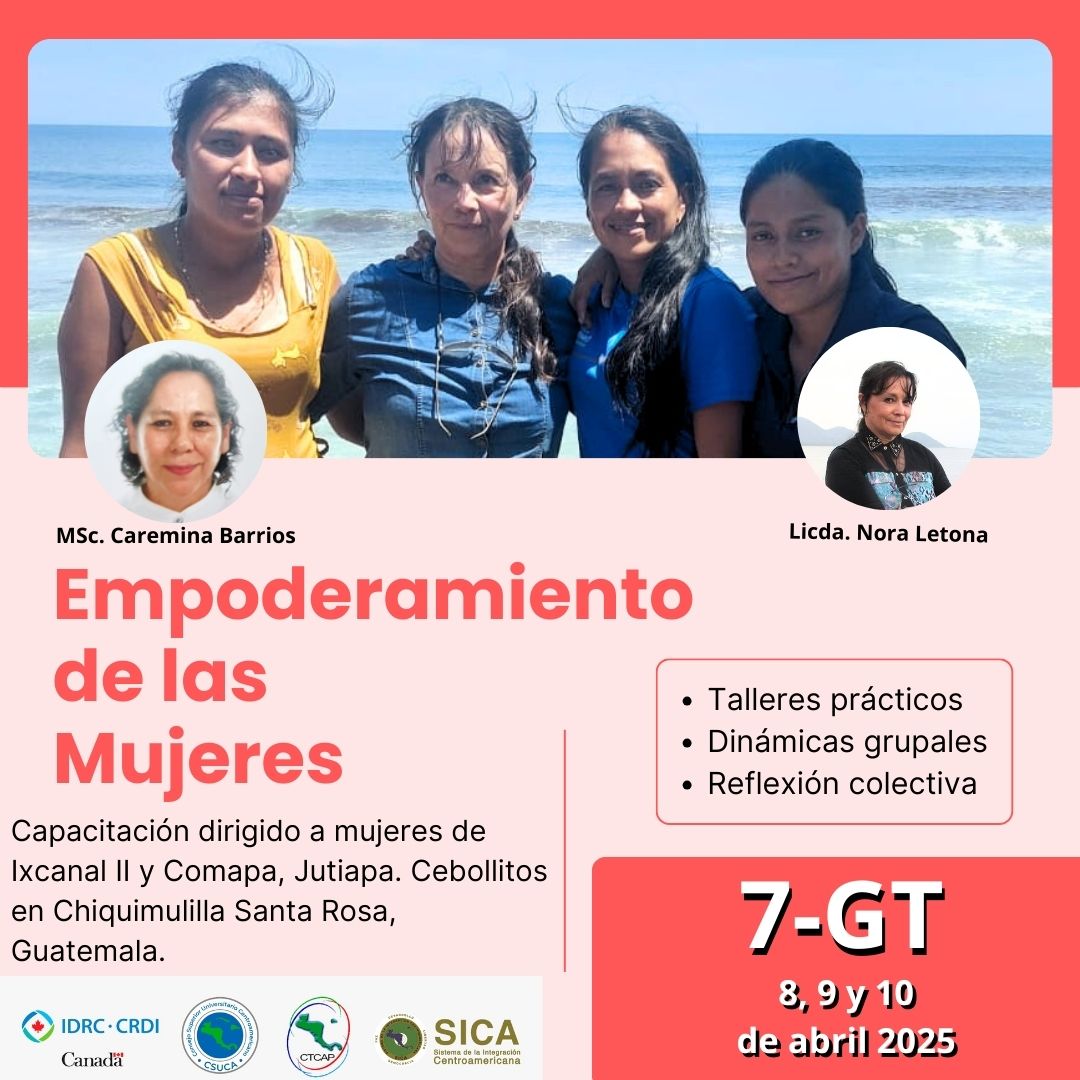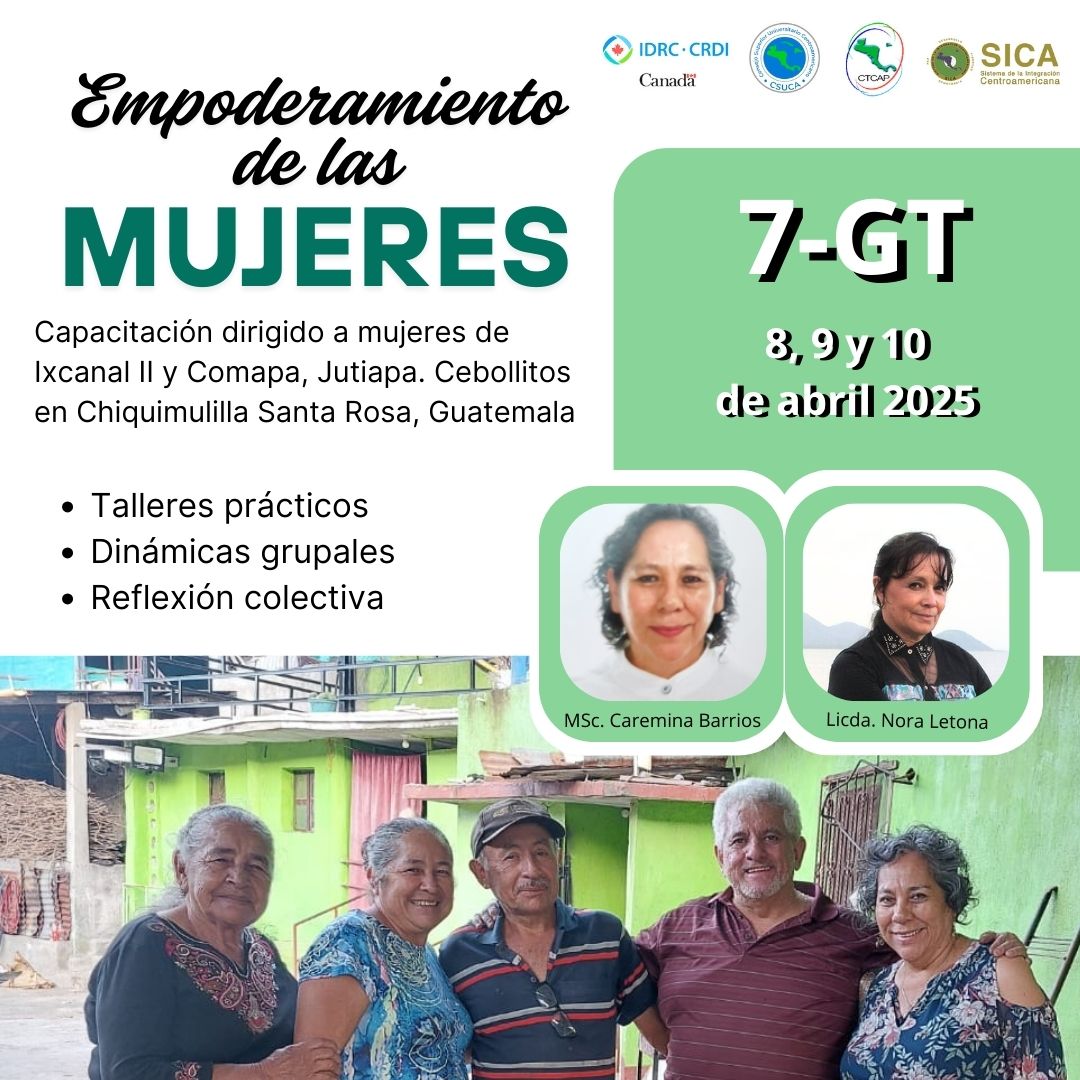San Salvador, mayo de 2025
En el marco del Proyecto 7-GT/UES, financiado por el Centro Internacional de Investigaciones para el Desarrollo (IDRC) de Canadá y el Consejo Superior Universitario Centroamericano (CSUCA), se han ejecutado diversas actividades orientadas al fortalecimiento del Sistema Milpa Intercalada con Árboles Frutales (MIAF) en El Salvador.
Entre las acciones destacadas se encuentra la adquisición de herramientas básicas para el manejo de cultivos frutícolas y anuales, esenciales para mejorar las prácticas agrícolas en las áreas de influencia del proyecto.
Asimismo, en las instalaciones de CENSALUD se desarrolló una reunión estratégica para revisar el informe de actividades ejecutadas durante 2024 e iniciar la planificación de la segunda etapa del proyecto. Como resultado, se definió un calendario de reuniones con los diferentes equipos y se establecieron lineamientos para la formulación de presupuestos por rubro, necesarios para gestionar el segundo desembolso del proyecto, equivalente al 40% del total.
En San Luis Talpa, se avanzó en la infraestructura técnica con la instalación del pedestal para una de las Estaciones Meteorológicas adquiridas, gracias al trabajo conjunto del Ing. Danilo Alex Ramírez y el personal de la Estación Experimental y de Prácticas.
Además, se ejecutaron jornadas de campo que incluyeron visitas casa por casa en el caserío El Hervedor, coordinadas por la Licda. Gilma Cruz Ortiz junto a estudiantes de quinto año de agroindustria. Estas actividades se enmarcan en un diagnóstico participativo con agricultores locales.
El 24 de marzo, 48 estudiantes de la carrera de Ingeniería Agronómica participaron activamente en la aplicación de 157 encuestas a productores de maíz de varias cooperativas integradas a FECORA de R.L., como parte del curso de “Formulación y Evaluación de Proyectos”. También se llevó a cabo un análisis FODA con 13 directivos de la federación para evaluar sus capacidades institucionales en apoyo a la cadena agroproductiva, especialmente en el rubro del maíz.
Estas acciones consolidan el compromiso de las instituciones involucradas con el desarrollo sostenible, la innovación agrícola y el fortalecimiento organizacional en las comunidades rurales de El Salvador.
